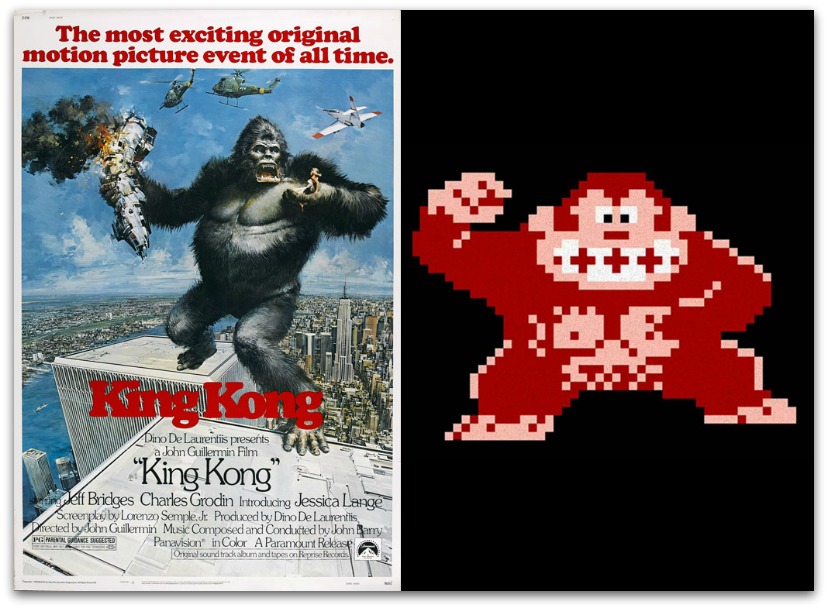Video games hit big in the early 1980s, and then so did the gavel.
King Kong v. Donkey Kong
Nintendo’s Donkey Kong was a big hit in arcades, and in 1982 Universal Studios sued Nintendo for copyright infringement. The film company felt that Donkey Kong infringed on the movie King Kong. Rather than deny it, Nintendo fought the suit by claiming that Universal didn’t even own the rights to King Kong. The courts sided with Nintendo…because the video game company was correct. King Kong was in the public domain, a distinction it argued when facing lawsuits by RKO Pictures in 1976 when it released a remake of King Kong.
Pac-Man v. K.C. Munchkin
Atari’s 2600 dominated the early home video game console market, but they weren’t the only game in town. Magnanox and Philips had a system called (variously around the world) the Videopac or the Odyssey 2. Atari announced that it would have a home version of the arcade smash Pac-Man on the 2600 by the end of 1982, but Magnavox/Philips beat them to the punch with a game for their system called K.C. Munchkin. It involved a circle-shaped character traveling around a maze, eating white pellets while avoiding monsters. Sound familiar? It did to Atari, because it was almost the exact same game as Pac-Man. (Pac-Man’s villains were ghosts, not monsters.) Atari sued Philips for copyright infringement, and they won. It was a legal precedent, in determining how existing copyright law would affect the emerging world of software and video games.
Karate Champ v. World Karate Championship
In 1984, Data East released an arcade game called Karate Champ, a primitive fighting game in which two players made their characters kick and punch each other. A year later, competitor Epyx released a game called World Karate Championship, in which two players made their characters kick and punch each other. Data East sued for copyright infringement. Initially, the law sided with Data East, arguing that World Karate ripped off Karate. But Epyx appealed, and a judge reversed the ruling, arguing that while the games were similar, it wasn’t because the latter game stole from the other, but that they were both karate games, and would necessarily have similarities. Legally, this meant that games in the future could have a similar style without infringing on trademarks.





